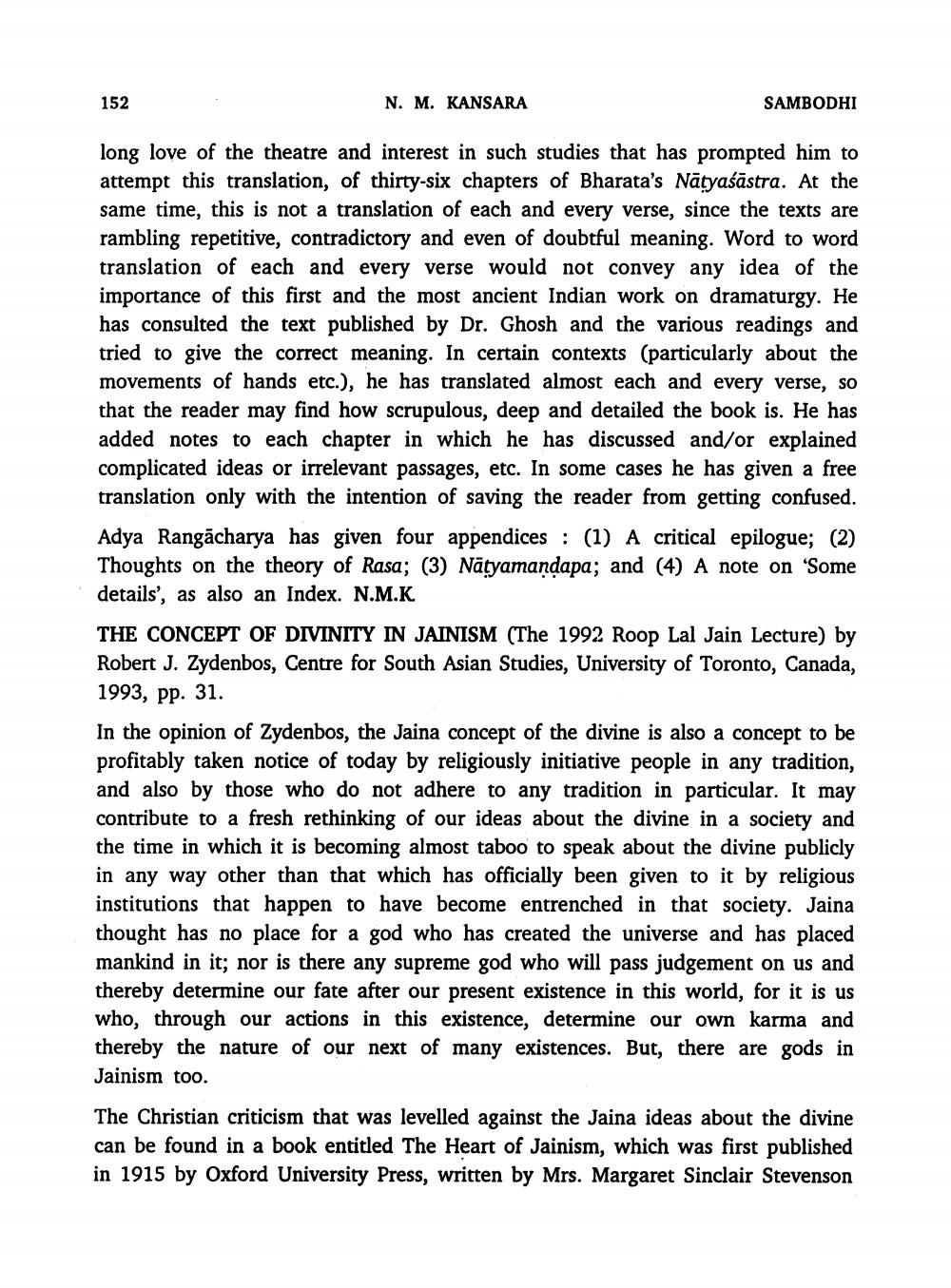________________
152
N. M. KANSARA
SAMBODHI
long love of the theatre and interest in such studies that has prompted him to attempt this translation, of thirty-six chapters of Bharata's Nātyaśāstra. At the same time, this is not a translation of each and every verse, since the texts are rambling repetitive, contradictory and even of doubtful meaning. Word to word translation of each and every verse would not convey any idea of the importance of this first and the most ancient Indian work on dramaturgy. He has consulted the text published by Dr. Ghosh and the various readings and tried to give the correct meaning. In certain contexts (particularly about the movements of hands etc.), he has translated almost each and every verse, so that the reader may find how scrupulous, deep and detailed the book is. He has added notes to each chapter in which he has discussed and/or explained complicated ideas or irrelevant passages, etc. In some cases he has given a free translation only with the intention of saving the reader from getting confused.
Adya Rangācharya has given four appendices : (1) A critical epilogue; (2) Thoughts on the theory of Rasa; (3) Natyamandapa; and (4) A note on 'Some details', as also an Index. N.M.K. THE CONCEPT OF DIVINITY IN JAINISM (The 1992 Roop Lal Jain Lecture) by Robert J. Zydenbos, Centre for South Asian Studies, University of Toronto, Canada, 1993, pp. 31. In the opinion of Zydenbos, the Jaina concept of the divine is also a concept to be profitably taken notice of today by religiously initiative people in any tradition, and also by those who do not adhere to any tradition in particular. It may contribute to a fresh rethinking of our ideas about the divine in a society and the time in which it is becoming almost taboo to speak about the divine publicly in any way other than that which has officially been given to it by religious institutions that happen to have become entrenched in that society. Jaina thought has no place for a god who has created the universe and has placed mankind in it; nor is there any supreme god who will pass judgement on us and thereby determine our fate after our present existence in this world, for it is us who, through our actions in this existence, determine our own karma and thereby the nature of our next of many existences. But, there are gods in Jainism too. The Christian criticism that was levelled against the Jaina ideas about the divine can be found in a book entitled The Heart of Jainism, which was first published in 1915 by Oxford University Press, written by Mrs. Margaret Sinclair Stevenson




